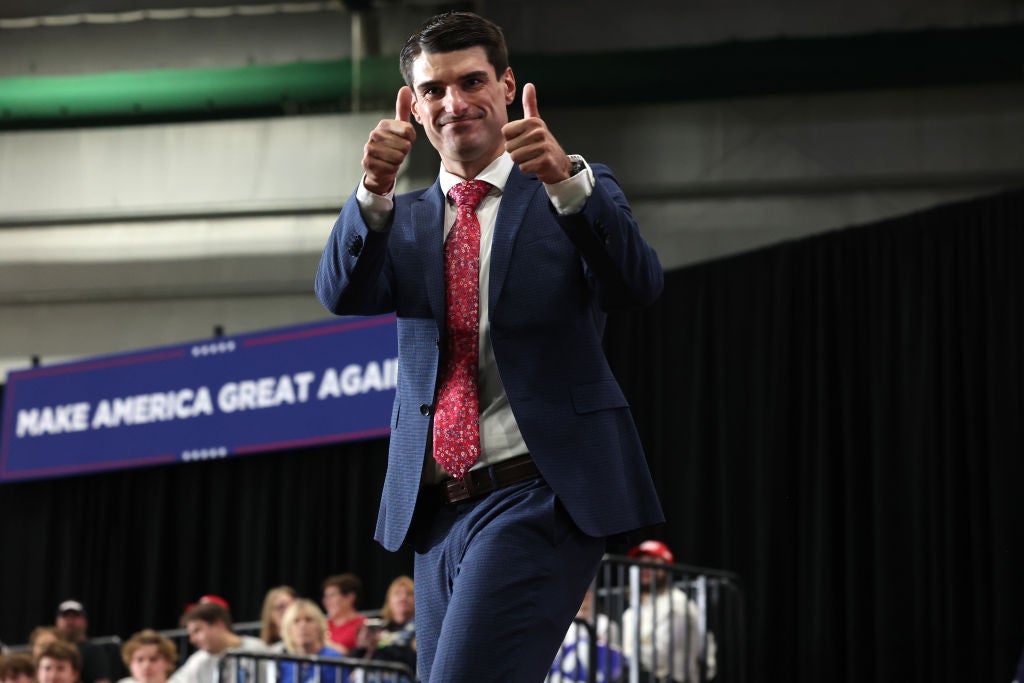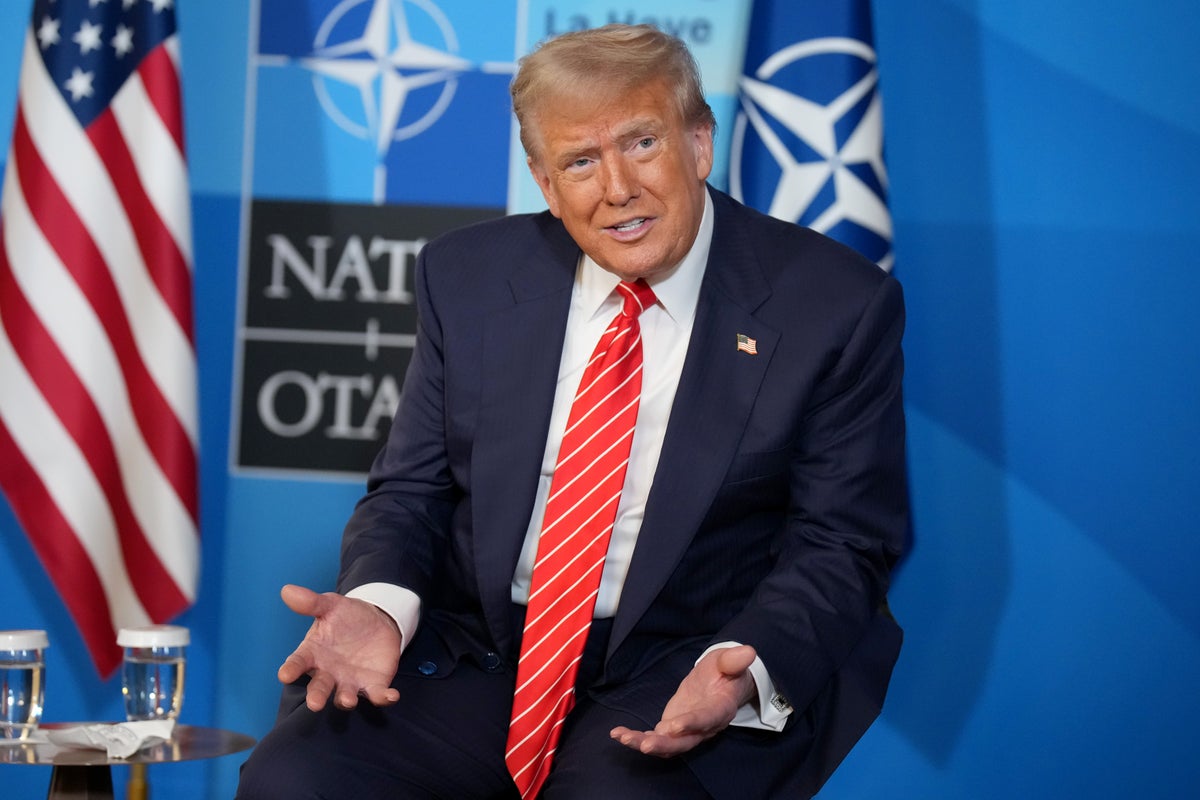Numerous members of Congress had investments in key defense firms on the line before the war between Israel and Iran reignited, only to see momentum fizzle with Monday’s announcement of a ceasefire.
Among them is the primary sponsor of a ban on congressional stock trading, drawing into question how serious Congress really is about separating its members from the appearance of profiting off of the office.
Stock trading among members of Congress has long been a controversial practice. As the Covid pandemic raged across the U.S. in 2020, lawmakers fell under renewed scrutiny for their trades after it was revealed that some members of Congress dumped millions of dollars’ worth of stock ahead of the coinciding economic crash.
The effort to ban or restrict the trading of individual stocks by members or their spouses was renewed in May when Rep. Rob Bresnahan, a Pennsylvania Republican, re-introduced the TRUST Act — a piece of legislation that would bar sales of stock for members or their spouses unless those assets were held in a qualified blind trust. Originally introduced in January, the legislation has dozens of bipartisan co-sponsors.
At the time, the swing-district congressman proclaimed that “the public should never have to question whether their elected officials are serving the public or their own portfolios,” a clear reference to the suspicion under which his colleagues have fallen for stock trading in office.

Speaker Mike Johnson and Minority Leader Hakeem Jeffries both publicly back a ban, but the TRUST Act has yet to get a vote.
Bresnahan, meanwhile, continues to own a sizable stock portfolio, containing millions in assets and making more than 600 trades since coming to office this year.
Less than halfway through his first full term, the congressman is now facing the same kind of suspicion from voters regarding his financial activity outside of Congress. Recent trades have included a purchase of Lockheed Martin stock reported on May 15, less than a month before Israel’s war with Iran broke out and eventually drew the U.S. into launching strikes against three targets associated with Iran’s nuclear program. Lockheed is a major defense partner of the Israeli government, and is under contract to provide the Israeli Air Force with 75 of its F-35 strike fighters.
He took a question from a woman at a tele-town hall earlier this month on the issue, and his portfolio’s prolific trading was highlighted by the Twitter account Unusual Whales in early June. The popular account monitors trading by members of Congress and often highlights instances where lawmakers’ portfolios vastly outperform the market.
The congressman said in response that his portfolio is managed by a financial adviser, explaining: “I honestly have no idea what’s inside of the portfolio that I own...I do not have any dialogues with my financial advisers,” according to local NPR affiliate WHYY.
Bresnahan’s re-election campaign was the recipient of a $1,000 donation from a PAC representing Lockheed Martin Corporation two weeks after reporting the trade. The donation was one of dozens the PAC made at the end of May to centrist members of both parties, an early investment in the 2026 cycle.
In a statement in May, Bresnahan claimed that he was in the process of setting up a blind trust that would meet the act’s requirements in conversations with the House Ethics Committee.
His office told The Independent on Wednesday: “Rep. Bresnahan does not trade his own stocks – a point he has made repeatedly. All stock trades are and have been made by a financial advisor without his involvement, and he does not know what is traded or when. He believes Members of Congress should not be allowed to profit off the information they are entrusted with, which is why he introduced legislation to ban Congressional stock trading, restoring the integrity Americans expect and deserve from their government.”
Two Democrats co-sponsoring the TRUST Act both made similar trades. Josh Gottheimer, a New Jersey Democrat (and another hawkish figure in foreign policy circles) purchased Raytheon stock in late April, while Jared Moskowitz of Florida purchased Qualcomm and Lockheed stock at the beginning of the same month. Moskowitz has never taken a donation from Lockheed Martin’s PAC, and Gottheimer took a donation of the same amount ($1,000) earlier this year (though he never purchased the company’s stock).
Moskowitz’s office said in a statement in May that his trades are "managed by an outside third-party financial advisor.” Gottheimer said in 2022 that he would put his investments in a blind trust, but blamed the House Ethics Committee for procedural delays in that process when questioned by the Washington Examiner earlier this year.
“Prior to taking office, Josh turned over management of his retirement savings and investments to a third party, who has full investment discretion,” his spokesman said. “Throughout his time in Congress, decisions related to his managed investments have been made at the direction of that third party. Josh is also awaiting approval from Congress of a blind trust. In the meantime, he has taken the extra step of setting up an independent trust.”
The Independent has reached out to Gottheimer and Moskowitz’s offices for further comment.
Several members of Congress bought defense stocks within the last two months, including such well-known figures as Marjorie Taylor Greene — who repeatedly condemned the prospect of war with Iran after purchasing Palantir stock twice in April, then Boeing and Qualcomm stock in May. Rep. Jefferson Shreve, another freshman, bought Lockheed stock in April. Florida’s newly-appointed Senator Ashley Moody purchased Howmet Aerospace stock in early April. The Independent has reached out for comment.
But none are co-sponsors of restrictions on stock trading under the current Congress. Greene, in particular, has already been publicly dinged by one of her own Republican colleagues, Mike Lawler, for a lucrative trade she made in May.
“After many successful years of running my own business, I ran for Congress to bring that mindset to Washington. Now that I’m proudly serving the people of Northwest Georgia, I have signed a fiduciary agreement to allow my financial advisor to control my investments,” Greene told The Independent in a statement. “All of my investments are reported with full transparency. I refuse to hide my stock trades in a blind trust like many others do. Since my portfolio manager makes my trades for me, I usually find out about them when the media asks.”
If any members of Congress were looking to defense stocks for a quick profit after Israel began its assault on Iran earlier this month, they may already have been disappointed.
A ceasefire hammered into place by Trump on Monday evening appeared shaky at first, but nevertheless appears to be holding — sending stocks including Lockheed tumbling. As the president delivered a public tongue-lashing aimed at both sides of the conflict on Tuesday, the message from Washington was clear: the outbreak of further violence would be unacceptable.
Two Democratic senators, Mark Kelly and Jon Ossoff, introduced another version of a stock trading ban in the Senate near the end of May. John Thune, the Senate Majority Leader, has expressed skepticism about the need for stronger protections.

 5 hours ago
3
5 hours ago
3









